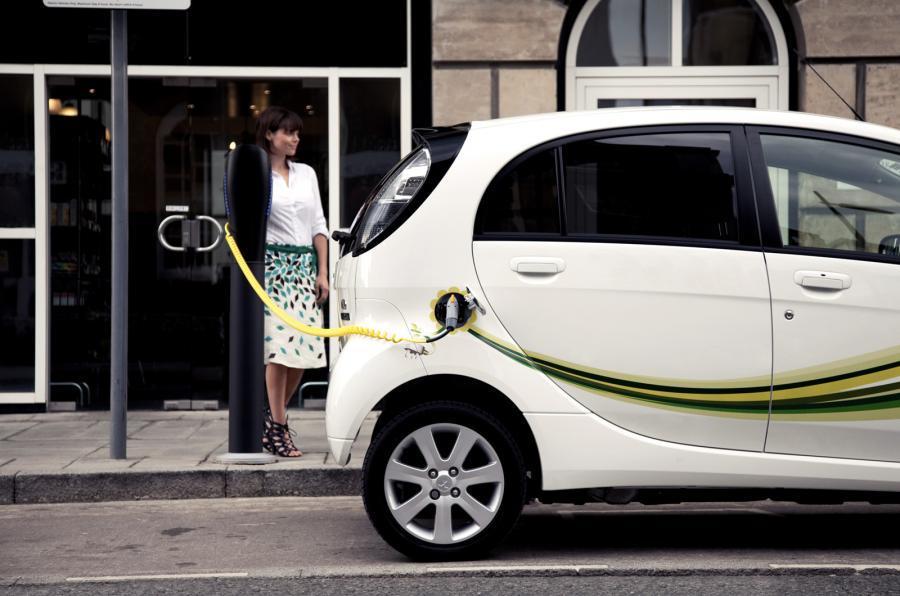Transport secretary Chris Grayling has proposed that new-build homes, as well as street lights in certain strategic areas, should be required to have electric vehicle chargers.
Grayling’s proposals, part of the Government’s wider Road to Zero strategy to cut emissions from road transport to zero, aim to encourage the public to buy EVs and boost the availability of EV chargers, reports the BBC.
New homes and offices will be considered for new charge points, if the proposals are put into practice, while long-suggested lamp post-based chargers will also be implemented.
"The prize is not just a cleaner and healthier environment but a UK economy fit for the future and the chance to win a substantial slice of a market estimated to be worth up to £7.6 trillion by 2050," said Grayling.
The European Automobile Manufacturers' Association (ACEA) recently revealed that the UK accounts for 12% of all EV chargers in the European Union — the fourth-highest proportion in the region. Only France (14%), Germany (22%) and the Netherlands (28%) have more.
There are around 100,000 charge points for EVs across the EU, although the European Commission has estimated that, by 2025, two million will be required to keep up with increased demand from an exploding EV market.
Critics have previously pointed out that home-based EV chargers are only of use for those with access to them; those who live in blocks of flats won’t have such a luxury.
Erik Fairbairn, CEO of charge point provider Pod Point, said: “The strategy shows some sensible proposals to increase the amount of EV charging infrastructure across the UK, with a good understanding of the need to roll out charging across homes, workplace and public locations.
“The strategy, however, is disappointing in that there is no movement on the Government’s 2040 ban of internal combustion vehicles. At Pod Point, we see a clear path which would allow internal combustion vehicles to be banned in 2030 — some 10 years earlier.”
Despite growing investment — both legislative and financial — from the Government, manufacturers still need to address the issue of range in cars, says the RAC’s head of roads policy, Nicholas Lyes: "Motorists' concerns about the limited range offered by electric vehicles needs to be addressed head on. Manufacturers have a role to play here, but so too does the Government in ensuring the necessary rapid charge infrastructure exists.





Join the debate
Add your comment
Black Dog
And you are evidently a little snowflake.
BLABLABLABLABAZZER
If you think the Hate Crime Laws are ' utter crap' then you are either very guilty or very naive.
Eighteen months ago, I spoke
Eighteen months ago, I spoke to someone at David Wilson Homes and pointed out that they're building blocks of flats with no possibility of future-proofing them for chargers (as the only walls are the bottom flats. I pointed out to him that their car parks would have to be ripped up to serve multi-storey flats in the future. He just said that David Wilson Homes have no plans to supply charge points.
This is just one (!) of the things that really gets me about government. They should have introduced an emergency bill at leats two years ago compelling all developers to provide the facility for the future. They introduce so much complete and utter carp, like the Hate Crime laws, but don't do the things that are important. As they say, there's just no joined-up thinking. We need a big re-think in this country about the way we do things, or rather don't do them.
Letting property developers off the hook
Politicians are basically useless and can't get anything right it seems. Look at the recent diesel fiasco. They pass half-baked legislation to look as if they are doing something but fail to address the proper issues. They have let the building industry get away with poor design and all sorts of cheap-skating for years, especially garages into which a classic Mini can't fit and very little other standing space for cars. There is no way developers will do anything other than continue to build these mean cramped boxes with no decent facilities unless they are forced to. True they'll pass on the cost immediately, but when its infrastructure being built, you have to get it right from the start otherwise, as has already been pointed out concerning flats and terraced streets, converting existing properties to provide charging points and parking spaces will be more problematic.